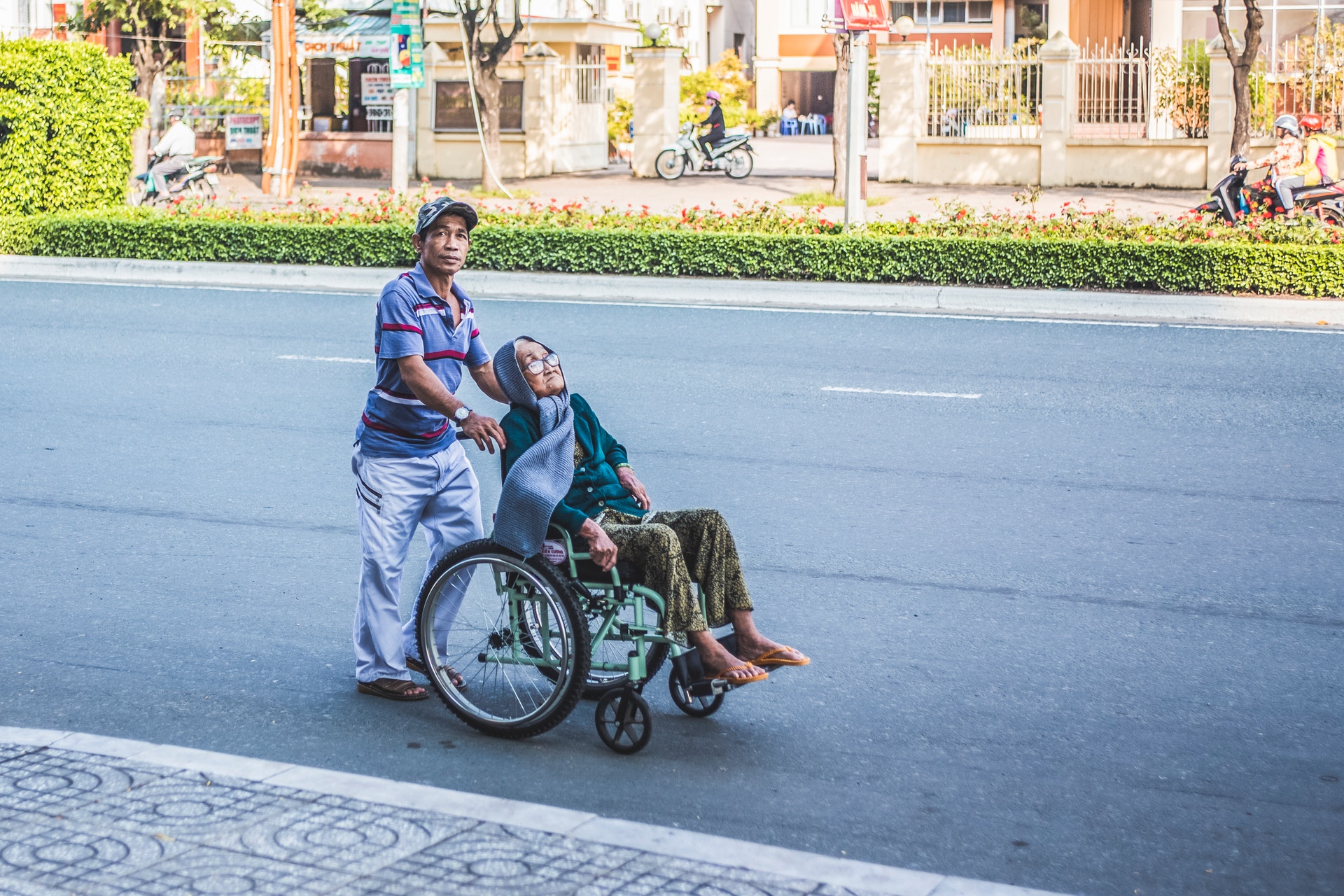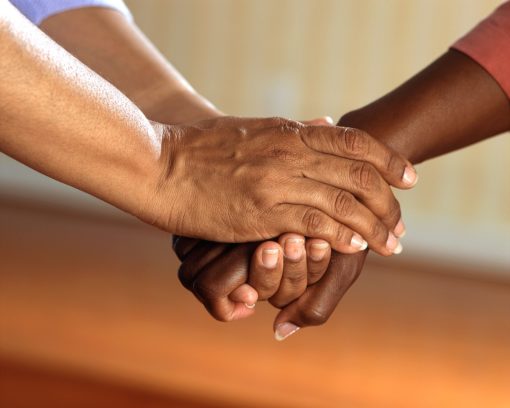
When the positive qualities of the caregiver archetype are active, you are able to look after yourself and others, and bring goals, desires and aspirations to fruition.
Psychologically and emotionally, this energy governs your self-worth. Self-worth is a vitally important facet of your internal make-up and plays a central role in how you treat others and how others treat you.
Integrating the caregiver archetype essentially determines many of your life experiences. As we see in the Persephone-Demeter-Hades triad, the caregiver archetype plays a central role in how you conduct yourself in the world.
How you think feel and act determines the energy you transmute. The energy you project manifests as physical reality. When you engage in behaviours that nurture your emotional well-being, you physically feel fulfilled.
“When we come into personal coherence, we feel much better emotionally, spiritually, and physically. Our cortisol levels go down, while the neurotransmitters serotonin and dopamine balance in our brains. We have high levels of all the brain waves that promote healing and low levels of anxiety linked to high beta. We feel good subjectively, and this translates into objective changes in the biology of our cells. Mind becomes matter as our brains are flooded with pleasure-inducing endorphins, intimacy-producing oxytocin, and the bliss molecule anandamide.” ~ Dawson Church, Mind To Matter
“Caregiver” is a relatively modern term that replaced the word “caretaker”. The Oxford English Dictionary describes a caretaker as: “one who takes care of a thing, place, or person; one put in charge of anything.”

The “one in charge of everything” draws parallels with the Ruler archetype, and as we find in Greek mythology, Demeter, the epitome of the caregiver archetype was the third wife of Zeus.
It’s easy to see that the caregiver is an aspect of the “Great Mother”. The caregiver archetype is personified in myth as the earth mother (Demeter), the aspect of your nature that regenerates life through nurture and nourishment.
In the Greek pantheon, we also find another aspect of the Great Mother in the goddess Hera, the 6th wife of Zeus. Hera is associated with marriage which is symbolic of the union between masculine and feminine principles.
When there are aspects of the ego that are undeveloped, Hera steps in as the Trickster archetype to present you with challenges. The Trickster archetype can guide you to see things from a different perspective. Sometimes you learn life’s lessons the hard way.
The other aspect of the Great Mother is the moon mother which gives birth to new ideas or new ways of being. In the role of caregiver, Persephone is cast in the role of the moon mother. In Attica, Persephone and Demeter are considered two aspects of the same consciousness in different stages of development (maiden, motherhood, crone).
Individuals with a well-developed caregiver archetype know compassion and have a genuine desire to help others without expecting anything in return. They are authentic, provide emotional nourishment, provide good companionship, have excellent organisation skills and are highly dependable.
For the caregiver archetype to be fully developed, the individual must apply the positive qualities associated with this archetype – self-respect, self-care, patience and determination – to themselves. Because the caregiver breeds self-esteem and self-worth it is central to self-development.
Many people with the qualities of the caregiver archetype fail to fully develop this side of their personality because they lack self-worth. They may show compassion, generosity and a willingness to help others, but do not know how to say no.
This draining away of life is reflected by the always-giving nature of an individual with an undeveloped caregiver. The tendency to do things for others is driven by the need to be liked or to feel as though you belong.
Individuals that need praise and acceptance from others to feel good about themselves also have a tendency to shy away from asking other people – even when they are overwhelmed with work or emotions.
They may even refuse to talk about their problems to their closest friends because they don’t want to feel as though they are burdening other people.
When a child does not receive attention, affection and emotional nourishment from their parents, they feel unworthy. They feel as though they are not good enough. They experience emotional abandonment.
Studies show that individuals that think “I’m not good enough, nobody wants me” typically feel insecure in their adult relationships. This causes suffering, insecurity, trust issues, anxiety, settling for relationships that are toxic and feeling envy toward other couples.
Gabriel Mate postulates that when a child experiences abandonment, they become disconnected from the self. Symptoms of this disconnect show themselves in people that do not trust their instincts, allow their head to rule their heart, seek validation from others, and criticise themselves.
A negative trait of abandonment is co-dependency. Individuals with an undeveloped caregiver expend their energies in toxic relationships, work in dead-end jobs they hate, engage in self-destructive behaviours and may even develop a tendency for self-harm.
Guilt and shame are also common in people with an underdeveloped caregiver. These “self-blaming” emotions are often seeded in childhood when you’re parents reprimanded you for your behaviour. A child develops a sense of wrongdoing and can grow up believing they are a “bad person”.
It should be noted that shame and guilt are not the same even though they are sometimes felt together. Guilt is self-criticism which arises from something you feel you did wrong. Individuals that are disconnected from their True Nature will feel guilty even when they haven’t done anything wrong.
Shame, on the other hand, causes feelings of disgrace and dishonour. It’s usually caused by the actions or reactions of others – like being told you’ve done something wrong. Like emotional abandonment, shaming a child plants seeds that grow into the belief of “I am not worthy.”
Some people that feel undervalued live marginal lives and have a tendency to cast themselves as a martyr. This fishing for sympathy is simply because you want to be noticed and appreciated. You feel as though you need to show other people your value by taking care of their needs.
But when you are not fulfilled by their gratitude or feel any internal sense of self-satisfaction, you lose all sense of your nurturing instincts and make poor life choices.
“The dead litter is comprised of ideas, chores, and demands that don’t work, have no life, and bring no life to her. Such a woman becomes pale yet contentious, more and more uncompromising, yet scattered. Her fuse burns shorter and shorter. Popular culture calls this “burnout”—but it’s more than that, it’s hambre del alma, the starving soul. She does not realize that by sacrificing her need for return, she teaches her children to make the very same sacrifices of their own needs once they are grown.” ~ Clarissa Pinkola Estes, Ph.D, Women Who Run With Wolves
Individuals that do not cultivate a sense of self-worth through self-care and self-respect fall into depression.
We see this in the Homeric Hymn To Demeter. Hades rises from the depths of the earth (the unconscious) and snatches Persephone whilst she is picking flowers.
Children that have parents with undeveloped caregiver archetypes will typically grow into adults that lack self-worth and may be overwhelmed by the unconscious.
If the mother is overbearing, children will also fail to develop the life skills they need to take care of themselves in adulthood. Co-dependency then becomes a problem.
Persephone is the personification of an undeveloped caregiver archetype. Described by Homer as “the one with the delicate ankles”, she represents an individual with a weak, immature mind that is unable to “stand on the own two feet” and take care of themselves.
Children that do not receive sufficient emotional support from their parents are more likely to become adults with an undeveloped caregiver archetype. Because they lack self-respect and self-worth, they do not feel valued or receive respect from other people.
And so, to show they are “nice” people, they give themselves up for others.
It’s important to recognise that doing things for other people all the time is not a healthy strategy to feel valued.
Another form in which the negative attributes of the caregiver archetype surface is if you had an “overbearing mother.” Strict parents, or mothers that do everything for their child stunt personal and psychological growth. Children need time and space to learn for themselves.

A child needs to learn how to take care of themselves in order to become a fully-functioning and competent adult. Children that learn how to do things for themselves will maintain the willingness to learn as though mature – which is required to develop the explorer archetype – another aspect of the Great Mother reflected in the symbolism of the “moon mother”.
Individuals with an undeveloped caregiver archetype are predisposed to drift through life without any sense of purpose, meaning or belonging. Moreover, they are more inclined to trap themselves in unrewarding marriages and jobs they simply settle for.
If your timeline tells a story of toxic relationships, self-destructive behaviours or self-harm, you need to connect with the inner self and develop the positive qualities of the caregiver.
One way to do this is to activate the positive qualities of the Explorer archetype and learn to nurture your own self-interests. Another way is to be mindful of negative self-talk.
If you neglect your psychological development, the Trickster archetype will present you with challenges until you see the problem. In Greek mythology, Hera – The Trickster archetype – is forever creating problems for Zeus’ lovers and illegitimate children because she resents them.
However, the challenges you face in life is an opportunity to learn something about yourself. If the negative caregiver is showing itself to you, look into the Mother Complex.
When you find things you care about, you nurture emotional well-being. When you learn to say no and take time for yourself, and when you open up to other people and allow them to help you overcome your problems, you develop a sense of belonging.
You develop self-worth.
You can learn how to develop the caregiver archetype in this article. If you want to learn other critical self-development techniques and the archetypes they relate to, sign up for our Essential Self-Development Program.
